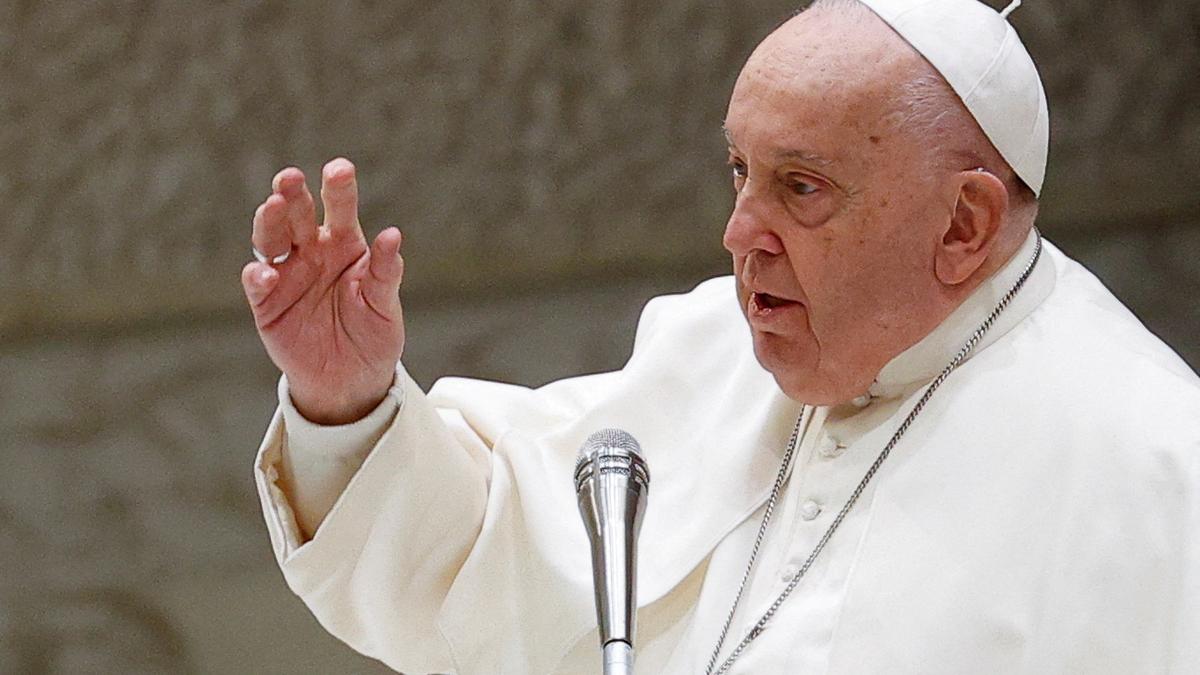Pope Francis Condemns Israeli Airstrikes in Gaza: A Christmas Tragedy?
The world watched in horror as Israeli airstrikes pounded Gaza, leaving a trail of death and destruction, especially among innocent children. Pope Francis, in a powerful Christmas address, didn't mince words, calling the attacks "cruelty" and not "war." This isn't just a conflict; it's a humanitarian crisis demanding our immediate attention. The sheer number of Palestinian casualties, mostly civilians, is staggering and heartbreaking. But how much longer can the global community stand idly by while this tragedy unfolds?
The Pope's Powerful Words Amidst Global Outrage
Pope Francis, leader of the Catholic Church, usually avoids taking sides in conflicts. Yet, in this instance, he's made his position unequivocally clear. His condemnation of the Israeli airstrikes rings louder than ever before, his heartfelt plea reaching millions of believers around the world. This unusual outspokenness reflects the deep concern of the international community, growing impatient with Israel's continued military offensive.
The Christmas Message: A Call for Peace and Justice
Francis's Christmas message, which mentioned the bombing of children in Gaza on Christmas Eve, immediately drew attention worldwide. The images and videos emerging from the region paint a distressing picture – hospitals overwhelmed, families torn apart, entire neighborhoods reduced to rubble. Many around the world echo Francis' sentiment of "cruelty," expressing intense outrage at the scale of suffering. Is the world truly doing everything in its power to protect civilians caught in this crossfire?
The Israeli Government's Response: Accusations of 'Trivialization'
In an unusual move, an Israeli minister responded directly to the Pope, criticizing his remarks on the potential for genocide in Gaza. Accusations of 'trivialization' came after the Pope mentioned the opinions of international experts who considered certain aspects of the situation in Gaza as bearing the hallmarks of genocide. These varying perspectives highlight the complexity of the conflict, with different interpretations shaping public narratives and driving political decisions.
Navigating a Complex Geopolitical Landscape: Words and Actions
This clash between statements adds a complex layer to an already fraught situation. Understanding the different perspectives requires considering various sources and interpretations of events. The situation in Gaza calls for an intricate examination of all contributing factors, taking into account the suffering of ordinary civilians on both sides while recognizing the need for effective and diplomatic strategies for a peaceful solution.
The Humanitarian Crisis in Gaza: A Call to Action
The humanitarian situation in Gaza continues to escalate into a major international concern. Reports of shortages of essential resources such as food, water, medical supplies, and electricity have led to the mass displacement of the entire population. Rebuilding Gaza, once the conflict is over, will necessitate tremendous international assistance. It is critical to address the root causes of this protracted crisis.
Beyond the Headlines: The Impact on Civilian Life
Hospitals, schools and civilian shelters are amongst the most heavily damaged infrastructure in the ongoing conflict. While the exact nature of Israel's actions, the extent of the harm to civilian infrastructure, and whether those actions might meet international legal definitions are a matter of intense international dispute, millions have become casualties of the crisis in a variety of different ways. The human impact of this ongoing crisis is palpable and will have wide-ranging consequences for decades to come. There needs to be extensive support in aid, infrastructure development, and the provision of ongoing services.
The Way Forward: Towards Peace and Reconciliation in the Middle East
The Pope's condemnation is only one element in a long line of escalating statements and actions concerning the conflict in Gaza. Moving towards peace requires a thorough examination of all aspects, starting with both the root causes and the resulting damage of the Israeli-Palestinian conflict. Dialogue, understanding, and a commitment to multilateral solutions are indispensable elements of a pathway to peace. The world must remain vigilant in supporting aid and infrastructure reconstruction efforts in the region. But these must be only part of an entire comprehensive resolution to prevent similar tragedies.
The Urgency for Global Cooperation: A Shared Responsibility
This tragedy highlights the urgent need for global cooperation in finding lasting solutions in the region. By creating environments that provide space for both compromise and the exploration of peaceful settlements, international actors can foster long-term change, mitigating further risk of humanitarian disasters. We must come together in a shared effort toward mutual understanding and lasting peace, not only as the international community, but as members of the human family.
Take Away Points:
- Pope Francis's strong condemnation of the Israeli airstrikes underscores the gravity of the humanitarian crisis in Gaza.
- The Israeli government's response highlights the differing perspectives on the situation.
- The international community faces a growing urgency to address the crisis and bring about a just resolution.
- Moving forward requires an honest evaluation of both causes and consequences of the conflict, plus multilateral action.
- Global cooperation remains imperative in achieving lasting peace in the Middle East and fostering aid efforts.




